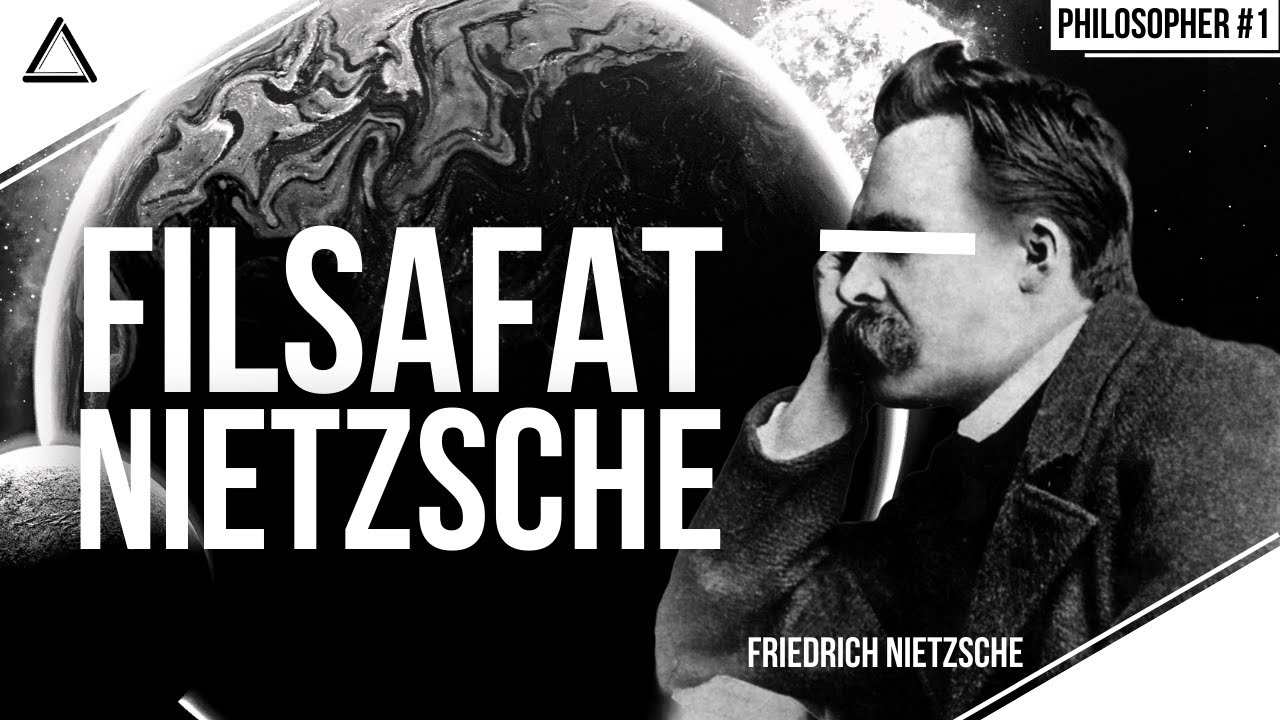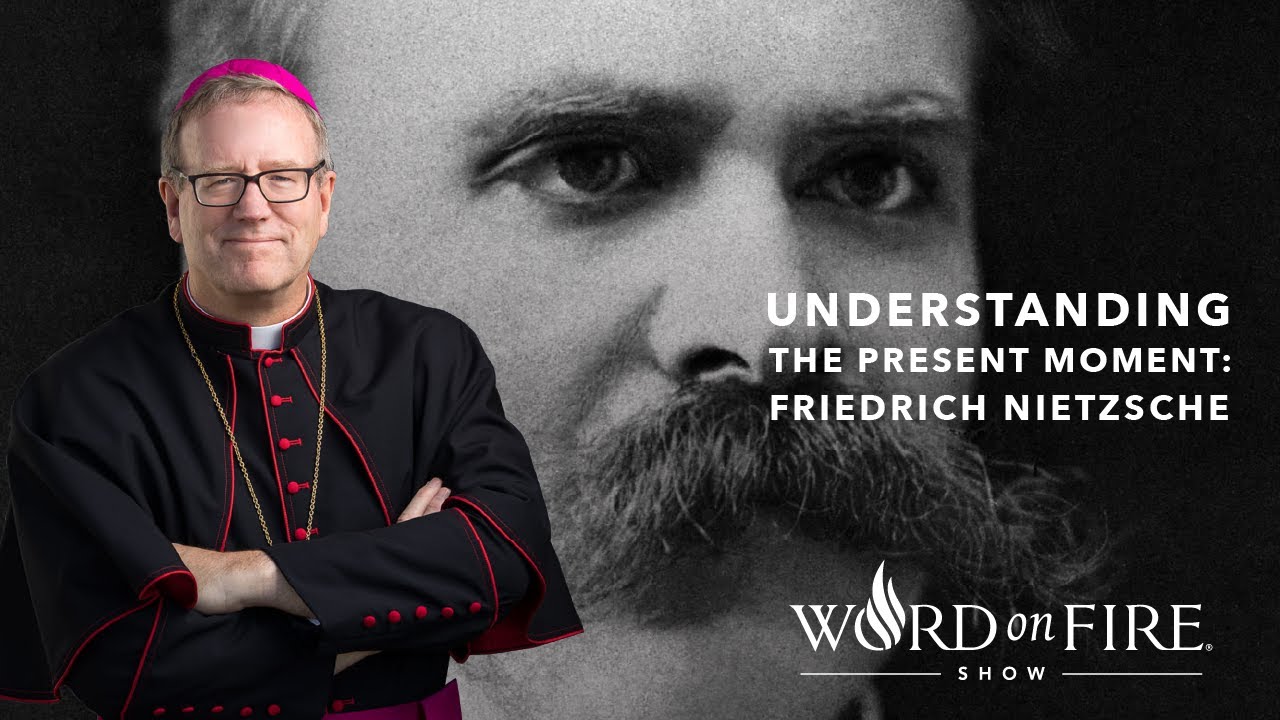Nietzsche: God Is Dead
Summary
TLDRIn this video, philosopher Friedrich Nietzsche's famous phrase 'God is dead' is explored, highlighting the decline of religious belief in the modern world and its impact on society. Nietzsche argues that religion once provided comfort and meaning but has lost its influence due to the rise of science and individualism. The video contrasts religion and socialism as systems that glorify weakness, and Nietzsche challenges individuals to embrace strength and courage in facing life’s challenges. His critique extends to nationalism and anti-Semitism, urging people to create their own values in a world without divine authority.
Takeaways
- 😀 Nietzsche's famous phrase 'God is dead' reflects the idea that religion has lost its influence in the modern world, causing a crisis in societal values.
- 😀 The decline of religion in modern times has left people without a sense of purpose, equality, or divine guidance, leading to feelings of emptiness and uncertainty.
- 😀 The rise of science and individualism has replaced religious explanations of the world, yet the transition away from religious belief has been rapid and unsettling for many.
- 😀 Nietzsche compares society's loss of religious faith to a young orphan suddenly bereft of parental guidance, struggling to navigate a world without the familiar comfort of belief.
- 😀 Most people in the 19th century were uncomfortable confronting a world without God, often retreating to faith-based safety nets or nervously clinging to outdated beliefs.
- 😀 Socialism in the 19th century accepted the idea that God is dead but still sought a new form of authority, hoping the state would provide the security and guidance once offered by religion.
- 😀 Both Judeo-Christian religion and socialism emphasize selflessness and the importance of caring for the weak, but they also retreat to idealized futures that provide comfort from present hardships.
- 😀 Nietzsche critiques both religious and socialist visions of an ideal future, arguing that they glorify weakness and avoid facing the harsh realities of the world.
- 😀 Nietzsche calls for individuals of courage who can face the world as it is, without seeking the comfort of religious or socialist utopias, and who can stand alone with strength and resolve.
- 😀 Nietzsche's philosophy critiques not only religion and socialism but also nationalism and anti-Semitism, which he also condemned through strong moral stances in his personal and intellectual life.
Q & A
What does Nietzsche mean by 'God is dead'?
-Nietzsche's phrase 'God is dead' refers to the decline of religious belief in the modern world. He suggests that the traditional Christian concept of God, which provided meaning and moral guidance for centuries, no longer holds the same authority or influence over people's lives. This declaration reflects the shift towards secularism and rationalism in the 19th century.
How did religion historically provide comfort and structure to people's lives?
-Religion historically gave people a sense of purpose, provided a moral framework, and promised a meaningful afterlife. It helped individuals feel connected to a higher power, gave them hope in the face of suffering, and reinforced the idea of equality and care among people, especially in the face of death.
What role has science played in the decline of religious belief according to the script?
-Science has challenged religious explanations of the world by providing more empirical, naturalistic answers to questions about existence, the universe, and life. As science has progressed, it has lessened religion's monopoly on understanding, contributing to the erosion of traditional religious beliefs.
Why does Nietzsche compare modern society to a 13-year-old orphaned overnight?
-Nietzsche uses this metaphor to illustrate how society, having relied on religion for guidance and meaning, is suddenly confronted with the absence of God. Just as a child who loses both parents must navigate the world alone, society must now face the reality of a godless world without the comforting beliefs that religion once provided.
How does Nietzsche describe people's reaction to the loss of religion?
-Nietzsche observes that most people avoid confronting the loss of religion, as the idea of a godless world is too frightening to contemplate. Many retreat to superficial beliefs or cling to old religious formulas out of habit, while others turn to political ideologies like socialism, which still rely on a sense of authority and order.
What is the difference between religious and socialist views on the world?
-Both religious and socialist ideologies share a belief in the need for selflessness and care for the weak, but they differ in their understanding of the world. Religion views the world as sinful and harsh but promises an ideal future where the meek are saved. Socialism, on the other hand, sees exploitation and inequality as the problem, aiming for a future where the oppressed are empowered, and harsh competition is eliminated.
How does Nietzsche view the socialist solution to the 'God is dead' problem?
-Nietzsche is critical of socialism as a replacement for religion. He sees socialism as glorifying weakness and dependence on authority, much like religion. He argues that both systems offer an imaginary future where people can escape the harsh realities of the present, without offering a true, individual path to strength and independence.
What does Nietzsche mean by asking for men of courage?
-Nietzsche calls for individuals who are willing to face the harsh realities of the world without relying on religious or political ideologies for comfort or authority. He seeks individuals who can confront the 'abyss' of existence, stand alone, and find meaning in a world without divine guidance or an idealized future.
How does Nietzsche's personal life reflect his philosophical stance?
-Nietzsche's personal life, especially his break with his sister who married an anti-Semite, demonstrates his commitment to moral independence and his rejection of conformity. He criticized both religious and political ideologies that he saw as compromising individual strength and authenticity.
What impact has Nietzsche had on modern thought?
-Nietzsche's philosophy has had a profound impact on modern thought, particularly in areas such as existentialism, individualism, and critiques of authority. His ideas about the 'death of God' and the need for individuals to create their own meaning continue to influence contemporary discussions in philosophy, politics, and culture.
Outlines

This section is available to paid users only. Please upgrade to access this part.
Upgrade NowMindmap

This section is available to paid users only. Please upgrade to access this part.
Upgrade NowKeywords

This section is available to paid users only. Please upgrade to access this part.
Upgrade NowHighlights

This section is available to paid users only. Please upgrade to access this part.
Upgrade NowTranscripts

This section is available to paid users only. Please upgrade to access this part.
Upgrade NowBrowse More Related Video

The Philosopher Everyone Hates...

Nihilisme Membunuh Nilai Tradisional | Filosofi Friedrich Nietzsche | Philosopher #1

The Philosophy of Nietzsche: The Birth of Tragedy, Thus Spoke Zarathustra; Genealogy of Morality

Conflictoplossing bij Nietzsche

Understanding the Present Moment #2 (Friedrich Nietzsche)

Pascal's Wager Argument - For the Belief in God
5.0 / 5 (0 votes)